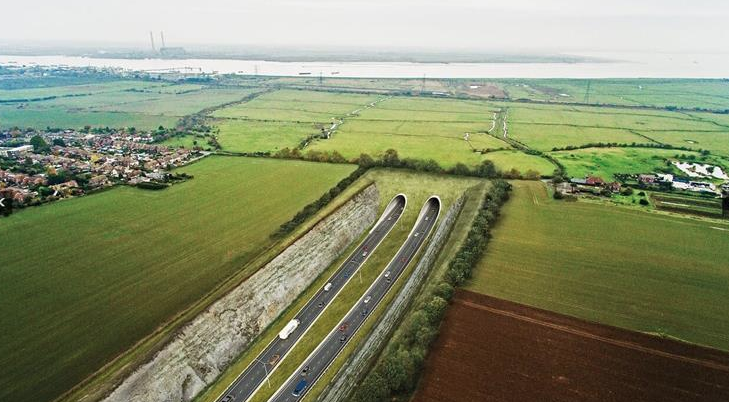Huge response to public consultation delays application for Lower Thames Crossing DCO
 The crossing is still scheduled for a 2027 completion
The crossing is still scheduled for a 2027 completion
Wednesday, September 11, 2019
A staggering total of almost 29,000 responses to the public consultation has caused Highways England to delay its planning application for the Lower Thames Crossing.
The second tranche of consultation on the £6.8 billion road scheme pulled in 28,493 responses, meaning HE needs more time to analyse any new information and views.
Chris Taylor, HE director of complex infrastructure, wrote in a project update: “We’re now considering the consultation responses in detail as we continue to improve the design of the project.
“We’ll also be using the information gathered from our ground investigations programme to ensure that our project is delivered in a way that has the smallest possible impact on the nearby communities and environment.
“To do this effectively, we will need more time to develop our planning application (Development Consent Order application), which we now plan to submit in summer 2020.
“This, however, does not impact the target road-opening in 2027 as we’ve done more work to our schedule to speed up the construction programme.”
Almost 15,000 people are reported to have visited some 60 LTC consultation events, while many thousands more got involved with the scheme online.
Work began in July on more than 700 tests in Essex and Kent aimed at identifying what the 14.5-mile road, including tunnelling, will be built on and through.
Project director Tim Jones said: “The complex programme of tests and surveys we’re embarking on here will enable us to better understand the ground conditions, and help us build it safely, in a way that protects the environment while keeping costs down.
“This preliminary work will help us to give the clearest possible picture of what will be involved in building the new crossing when we apply for planning consent and help ensure our construction programme can get the new road open for 2027.
“Our priority right now is to carry out the ground investigations in a way that will have the smallest possible impact on the environment and nearby communities.”
